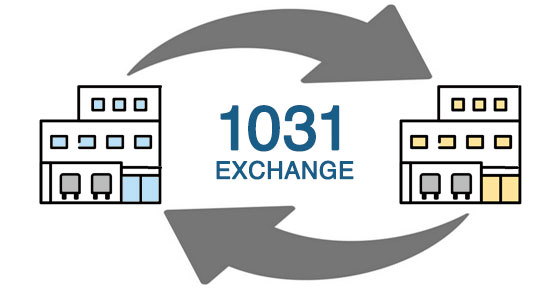Weekly Tax Brief
Help safeguard your personal information by filing your 2021 tax return early
- Details
- Published: 20 January 2022 20 January 2022

The IRS announced it is opening the 2021 individual income tax return filing season on January 24. (Business returns are already being accepted.) Even if you typically don’t file until much closer to the April deadline (or you file for an extension until October), consider filing earlier this year. Why? You can potentially protect yourself from tax identity theft — and there may be other benefits, too.
How tax identity theft occurs
In a tax identity theft scheme, a thief uses another individual’s personal information to file a bogus tax return early in the filing season and claim a fraudulent refund.
The actual taxpayer discovers the fraud when he or she files a return and is told by the IRS that it is being rejected because one with the same Social Security number has already been filed for the tax year. While the taxpayer should ultimately be able to prove that his or her return is the legitimate one, tax identity theft can be a hassle to straighten out and significantly delay a refund.
Filing early may be your best defense: If you file first, it will be the tax return filed by a potential thief that will be rejected — not yours.
Note: You can still get your individual tax return prepared by us before January 24 if you have all the required documents. But processing of the return will begin after IRS systems open on that date.
Your W-2s and 1099s
To file your tax return, you need all of your W-2s and 1099s. January 31 is the deadline for employers to issue 2021 W-2 forms to employees and, generally, for businesses to issue Form 1099s to recipients for any 2021 interest, dividend or reportable miscellaneous income payments (including those made to independent contractors).
If you haven’t received a W-2 or 1099 by February 1, first contact the entity that should have issued it. If that doesn’t work, you can contact the IRS for help.
Other benefits of filing early
In addition to protecting yourself from tax identity theft, another advantage of early filing is that, if you’re getting a refund, you’ll get it sooner. The IRS expects most refunds to be issued within 21 days. However, the IRS has been experiencing delays during the pandemic in processing some returns. Keep in mind that the time to receive a refund is typically shorter if you file electronically and receive a refund by direct deposit into a bank account.
Direct deposit also avoids the possibility that a refund check could be lost, stolen, returned to the IRS as undeliverable or caught in mail delays.
If you were eligible for an Economic Impact Payment (EIP) or advance Child Tax Credit (CTC) payments, and you didn’t receive them or you didn’t receive the full amount due, filing early will help you to receive the money sooner. In 2021, the third round of EIPs were paid by the federal government to eligible individuals to help mitigate the financial effects of COVID-19. Advance CTC payments were made monthly in 2021 to eligible families from July through December. EIP and CTC payments due that weren’t made to eligible taxpayers can be claimed on your 2021 return.
We can help
Contact us If you have questions or would like an appointment to prepare your tax return. We can help you ensure you file an accurate return that takes advantage of all of the breaks available to you.
© 2022
Businesses with employees who receive tips may be eligible for a tax credit
- Details
- Published: 18 January 2022 18 January 2022

If you’re an employer with a business where tipping is customary for providing food and beverages, you may qualify for a federal tax credit involving the Social Security and Medicare (FICA) taxes that you pay on your employees’ tip income.
Basics of the credit
The FICA credit applies with respect to tips that your employees receive from customers in connection with the provision of food or beverages, regardless of whether the food or beverages are for consumption on or off the premises. Although these tips are paid by customers, they’re treated for FICA tax purposes as if you paid them to your employees. Your employees are required to report their tips to you. You must withhold and remit the employee’s share of FICA taxes, and you must also pay the employer’s share of those taxes.
You claim the credit as part of the general business credit. It’s equal to the employer’s share of FICA taxes paid on tip income in excess of what’s needed to bring your employee’s wages up to $5.15 per hour. In other words, no credit is available to the extent the tip income just brings the employee up to the $5.15-per-hour level, calculated monthly. If you pay each employee at least $5.15 an hour (excluding tips), you don’t have to be concerned with this calculation.
Note: A 2007 tax law froze the per-hour amount at $5.15, which was the amount of the federal minimum wage at that time. The minimum wage is now $7.25 per hour but the amount for credit computation purposes remains $5.15.
An example to illustrate
Example: Let’s say a waiter works at your restaurant. He’s paid $2 an hour plus tips. During the month, he works 160 hours for $320 and receives $2,000 in cash tips which he reports to you.
The waiter’s $2-an-hour rate is below the $5.15 rate by $3.15 an hour. Thus, for the 160 hours worked, he is below the $5.15 rate by $504 (160 times $3.15). For the waiter, therefore, the first $504 of tip income just brings him up to the minimum rate. The rest of the tip income is $1,496 ($2,000 minus $504). The waiter’s employer pays FICA taxes at the rate of 7.65% for him. Therefore, the employer’s credit is $114.44 for the month: $1,496 times 7.65%.
While the employer’s share of FICA taxes is generally deductible, the FICA taxes paid with respect to tip income used to determine the credit can’t be deducted, because that would amount to a double benefit. However, you can elect not to take the credit, in which case you can claim the deduction.
Claim your credit
If your business pays FICA taxes on tip income paid to your employees, the tip tax credit may be valuable to you. Other rules may apply. If you have any questions, don’t hesitate to contact us.
© 2022
How will revised tax limits affect your 2022 taxes?
- Details
- Published: 14 January 2022 14 January 2022

While Congress didn’t pass the Build Back Better Act in 2021, there are still tax changes that may affect your tax situation for this year. That’s because some tax figures are adjusted annually for inflation.
If you’re like most people, you’re probably more concerned about your 2021 tax bill right now than you are about your 2022 tax situation. That’s understandable because your 2021 individual tax return is generally due to be filed by April 18 (unless you file an extension).
However, it’s a good idea to acquaint yourself with tax amounts that may have changed for 2022. Below are some Q&As about tax amounts for this year.
I have a 401(k) plan through my job. How much can I contribute to it?
For 2022, you can contribute up to $20,500 (up from $19,500 in 2021) to a 401(k) or 403(b) plan. You can make an additional $6,500 catch-up contribution if you’re age 50 or older.
How much can I contribute to an IRA for 2022?
If you’re eligible, you can contribute $6,000 a year to a traditional or Roth IRA, or up to 100% of your earned income. If you’re 50 or older, you can make another $1,000 “catch-up” contribution. (These amounts were the same for 2021.)
I sometimes hire a babysitter and a cleaning person. Do I have to withhold and pay FICA tax on the amounts I pay them?
In 2022, the threshold when a domestic employer must withhold and pay FICA for babysitters, house cleaners, etc., is $2,400 (up from $2,300 in 2021).
How much do I have to earn in 2022 before I can stop paying Social Security on my salary?
The Social Security tax wage base is $147,000 for this year (up from $142,800 in 2021). That means that you don’t owe Social Security tax on amounts earned above that. (You must pay Medicare tax on all amounts that you earn.)
I didn’t qualify to itemize deductions on my last tax return. Will I qualify for 2022?
A 2017 tax law eliminated the tax benefit of itemizing deductions for many people by increasing the standard deduction and reducing or eliminating various deductions. For 2022, the standard deduction amount is $25,900 for married couples filing jointly (up from $25,100). For single filers, the amount is $12,950 (up from $12,550) and for heads of households, it’s $19,400 (up from $18,800). If your itemized deductions (such as mortgage interest) are less than the applicable standard deduction amount, you won’t itemize.
If I don’t itemize, can I claim charitable deductions on my 2022 return?
Generally, taxpayers who claim the standard deduction on their federal tax returns can’t deduct charitable donations. But thanks to two COVID-19-relief laws, non-itemizers could claim a limited charitable contribution deduction for the past two years (for 2021, this deduction is $300 for single taxpayers and $600 for married couples filing jointly). Unfortunately, unless Congress acts to extend this tax break, it has expired for 2022.
How much can I give to one person without triggering a gift tax return in 2022?
The annual gift exclusion for 2022 is $16,000 (up from $15,000 in 2021). This amount is only adjusted in $1,000 increments, so it typically only increases every few years.
More to your tax picture
These are only some of the tax amounts that may apply to you. Contact us for more information about your tax situation, or if you have questions.
© 2022
Businesses with employees who receive tips may be eligible for a tax credit
- Details
- Published: 11 January 2022 11 January 2022

If you’re an employer with a business where tipping is customary for providing food and beverages, you may qualify for a federal tax credit involving the Social Security and Medicare (FICA) taxes that you pay on your employees’ tip income.
Basics of the credit
The FICA credit applies with respect to tips that your employees receive from customers in connection with the provision of food or beverages, regardless of whether the food or beverages are for consumption on or off the premises. Although these tips are paid by customers, they’re treated for FICA tax purposes as if you paid them to your employees. Your employees are required to report their tips to you. You must withhold and remit the employee’s share of FICA taxes, and you must also pay the employer’s share of those taxes.
You claim the credit as part of the general business credit. It’s equal to the employer’s share of FICA taxes paid on tip income in excess of what’s needed to bring your employee’s wages up to $5.15 per hour. In other words, no credit is available to the extent the tip income just brings the employee up to the $5.15-per-hour level, calculated monthly. If you pay each employee at least $5.15 an hour (excluding tips), you don’t have to be concerned with this calculation.
Note: A 2007 tax law froze the per-hour amount at $5.15, which was the amount of the federal minimum wage at that time. The minimum wage is now $7.25 per hour but the amount for credit computation purposes remains $5.15.
An example to illustrate
Example: Let’s say a waiter works at your restaurant. He’s paid $2 an hour plus tips. During the month, he works 160 hours for $320 and receives $2,000 in cash tips which he reports to you.
The waiter’s $2-an-hour rate is below the $5.15 rate by $3.15 an hour. Thus, for the 160 hours worked, he is below the $5.15 rate by $504 (160 times $3.15). For the waiter, therefore, the first $504 of tip income just brings him up to the minimum rate. The rest of the tip income is $1,496 ($2,000 minus $504). The waiter’s employer pays FICA taxes at the rate of 7.65% for him. Therefore, the employer’s credit is $114.44 for the month: $1,496 times 7.65%.
While the employer’s share of FICA taxes is generally deductible, the FICA taxes paid with respect to tip income used to determine the credit can’t be deducted, because that would amount to a double benefit. However, you can elect not to take the credit, in which case you can claim the deduction.
Claim your credit
If your business pays FICA taxes on tip income paid to your employees, the tip tax credit may be valuable to you. Other rules may apply. If you have any questions, don’t hesitate to contact us.
© 2022
IRS is sending IMPORTANT information letters to recipients of the Advance Child Tax Credit Payments and third Economic Impact Payments
- Details
- Published: 10 January 2022 10 January 2022
The IRS started issuing information letters to Advance Child Tax Credit recipients in December, Letter 6419, 2021 advance CTC. Recipients of the third round of the Economic Impact Payments will begin receiving information letters at the end of January, Letter 6475, Your Third Economic Impact Payment. These letters are important for preparing an accurate tax return for 2021. The letters should be retained for your records and provided to your accountant with your other tax documents for the year.
If you have any questions, please contact our office at 717-533-5154.
Are you eligible for a medical expense tax deduction?
- Details
- Published: 06 January 2022 06 January 2022

You may pay out a bundle in out-of-pocket medical costs each year. But can you deduct them on your tax return? It’s possible but not easy. Medical expenses can be claimed as a deduction only to the extent your unreimbursed costs exceed 7.5% of your adjusted gross income. Plus, medical expenses are deductible only if you itemize, which means that your itemized deductions must exceed your standard deduction.
Qualifying costs include many items other than hospital and doctor bills. Here are some items to take into account in determining a possible deduction:
Insurance premiums. The cost of health insurance is a medical expense that can total thousands of dollars a year. Even if your employer provides you with coverage, you can deduct the portion of the premiums you pay. Long-term care insurance premiums also qualify, subject to dollar limits based on age.
Transportation. The cost of getting to and from medical treatment is an eligible expense. This includes taxi fares, public transportation or using your own car. Car costs can be calculated at 18 cents a mile for miles driven in 2022 (up from 16 cents in 2021), plus tolls and parking. Alternatively, you can deduct your actual costs, including gas and oil, but not general costs such as insurance, depreciation or maintenance.
Therapists and nurses. Services provided by individuals other than physicians can qualify if they relate to a medical condition and aren’t for general health. For example, the cost of physical therapy after knee surgery would qualify, but the costs of a personal trainer to tone you up wouldn’t. Also qualifying are amounts paid to a psychologist for medical care and certain long-term care services required by chronically ill individuals.
Eyeglasses, hearing aids, dental work and prescriptions. Deductible expenses include the cost of glasses, contacts, hearing aids and most dental work. Purely cosmetic expenses (such as tooth whitening) don’t qualify, but certain medically necessary cosmetic surgery is deductible. Prescription drugs qualify, but nonprescription drugs such as aspirin don’t even if a physician recommends them. Neither do amounts paid for treatments that are illegal under federal law (such as marijuana), even if permitted under state law.
Smoking-cessation programs. Amounts paid to participate in a smoking-cessation program and for prescribed drugs designed to alleviate nicotine withdrawal are deductible expenses. However, nonprescription gum and certain nicotine patches aren’t.
Weight-loss programs. A weight-loss program is a deductible expense if undertaken as treatment for a disease diagnosed by a physician. This can be obesity or another disease, such as hypertension, for which a doctor directs you to lose weight. It’s a good idea to get a written diagnosis. Deductible expenses include fees paid to join a program and attend meetings. However, the cost of low-calorie food that you eat in place of a regular diet isn’t deductible.
Dependents and others. You can deduct the medical expenses you pay for dependents, such as your children. Additionally, you may be able to deduct medical costs you pay for an individual, such as a parent or grandparent, who would qualify as your dependent except that he or she has too much gross income or files jointly. In most cases, the medical costs of a child of divorced parents can be claimed by the parent who pays them.
In summation, medical costs are fairly broadly defined for deduction purposes. We can assess if you qualify for a deduction or answer any questions you have.
© 2022
Defer tax with a like-kind exchange
- Details
- Published: 04 January 2022 04 January 2022

Do you want to sell commercial or investment real estate that has appreciated significantly? One way to defer a tax bill on the gain is with a Section 1031 “like-kind” exchange where you exchange the property rather than sell it. With real estate prices up in some markets (and higher resulting tax bills), the like-kind exchange strategy may be attractive.
A like-kind exchange is any exchange of real property held for investment or for productive use in your trade or business (relinquished property) for like-kind investment, trade or business real property (replacement property).
For these purposes, like-kind is broadly defined, and most real property is considered to be like-kind with other real property. However, neither the relinquished property nor the replacement property can be real property held primarily for sale.
Important change
Under the Tax Cuts and Jobs Act, tax-deferred Section 1031 treatment is no longer allowed for exchanges of personal property — such as equipment and certain personal property building components — that are completed after December 31, 2017.
If you’re unsure if the property involved in your exchange is eligible for like-kind treatment, please contact us to discuss the matter.
Assuming the exchange qualifies, here’s how the tax rules work. If it’s a straight asset-for-asset exchange, you won’t have to recognize any gain from the exchange. You’ll take the same “basis” (your cost for tax purposes) in the replacement property that you had in the relinquished property. Even if you don’t have to recognize any gain on the exchange, you still must report it on Form 8824, “Like-Kind Exchanges.”
Frequently, however, the properties aren’t equal in value, so some cash or other property is tossed into the deal. This cash or other property is known as “boot.” If boot is involved, you’ll have to recognize your gain, but only up to the amount of boot you receive in the exchange. In these situations, the basis you get in the like-kind replacement property you receive is equal to the basis you had in the relinquished property you gave up reduced by the amount of boot you received but increased by the amount of any gain recognized.
An example to illustrate
Let’s say you exchange land (business property) with a basis of $100,000 for a building (business property) valued at $120,000 plus $15,000 in cash. Your realized gain on the exchange is $35,000: You received $135,000 in value for an asset with a basis of $100,000. However, since it’s a like-kind exchange, you only have to recognize $15,000 of your gain. That’s the amount of cash (boot) you received. Your basis in your new building (the replacement property) will be $100,000: your original basis in the relinquished property you gave up ($100,000) plus the $15,000 gain recognized, minus the $15,000 boot received.
Note that no matter how much boot is received, you’ll never recognize more than your actual (“realized”) gain on the exchange.
If the property you’re exchanging is subject to debt from which you’re being relieved, the amount of the debt is treated as boot. The theory is that if someone takes over your debt, it’s equivalent to the person giving you cash. Of course, if the replacement property is also subject to debt, then you’re only treated as receiving boot to the extent of your “net debt relief” (the amount by which the debt you become free of exceeds the debt you pick up).
Great tax-deferral vehicle
Like-kind exchanges can be a great tax-deferred way to dispose of investment, trade or business real property. Contact us if you have questions or would like to discuss the strategy further.
© 2022
Are you eligible for a medical expense tax deduction?
- Details
- Published: 04 January 2022 04 January 2022

You may pay out a bundle in out-of-pocket medical costs each year. But can you deduct them on your tax return? It’s possible but not easy. Medical expenses can be claimed as a deduction only to the extent your unreimbursed costs exceed 7.5% of your adjusted gross income. Plus, medical expenses are deductible only if you itemize, which means that your itemized deductions must exceed your standard deduction.
Qualifying costs include many items other than hospital and doctor bills. Here are some items to take into account in determining a possible deduction:
Insurance premiums. The cost of health insurance is a medical expense that can total thousands of dollars a year. Even if your employer provides you with coverage, you can deduct the portion of the premiums you pay. Long-term care insurance premiums also qualify, subject to dollar limits based on age.
Transportation. The cost of getting to and from medical treatment is an eligible expense. This includes taxi fares, public transportation or using your own car. Car costs can be calculated at 18 cents a mile for miles driven in 2022 (up from 16 cents in 2021), plus tolls and parking. Alternatively, you can deduct your actual costs, including gas and oil, but not general costs such as insurance, depreciation or maintenance.
Therapists and nurses. Services provided by individuals other than physicians can qualify if they relate to a medical condition and aren’t for general health. For example, the cost of physical therapy after knee surgery would qualify, but the costs of a personal trainer to tone you up wouldn’t. Also qualifying are amounts paid to a psychologist for medical care and certain long-term care services required by chronically ill individuals.
Eyeglasses, hearing aids, dental work and prescriptions. Deductible expenses include the cost of glasses, contacts, hearing aids and most dental work. Purely cosmetic expenses (such as tooth whitening) don’t qualify, but certain medically necessary cosmetic surgery is deductible. Prescription drugs qualify, but nonprescription drugs such as aspirin don’t even if a physician recommends them. Neither do amounts paid for treatments that are illegal under federal law (such as marijuana), even if permitted under state law.
Smoking-cessation programs. Amounts paid to participate in a smoking-cessation program and for prescribed drugs designed to alleviate nicotine withdrawal are deductible expenses. However, nonprescription gum and certain nicotine patches aren’t.
Weight-loss programs. A weight-loss program is a deductible expense if undertaken as treatment for a disease diagnosed by a physician. This can be obesity or another disease, such as hypertension, for which a doctor directs you to lose weight. It’s a good idea to get a written diagnosis. Deductible expenses include fees paid to join a program and attend meetings. However, the cost of low-calorie food that you eat in place of a regular diet isn’t deductible.
Dependents and others. You can deduct the medical expenses you pay for dependents, such as your children. Additionally, you may be able to deduct medical costs you pay for an individual, such as a parent or grandparent, who would qualify as your dependent except that he or she has too much gross income or files jointly. In most cases, the medical costs of a child of divorced parents can be claimed by the parent who pays them.
In summation, medical costs are fairly broadly defined for deduction purposes. We can assess if you qualify for a deduction or answer any questions you have.
© 2022
Will the standard business mileage rate go up in 2022? Yes!
- Details
- Published: 28 December 2021 28 December 2021

After two years of no increases, the optional standard mileage rate used to calculate the deductible cost of operating an automobile for business will be going up in 2022 by 2.5 cents per mile. The IRS recently announced that the cents-per-mile rate for the business use of a car, van, pickup or panel truck will be 58.5 cents (up from 56 cents for 2021).
The increased tax deduction partly reflects the price of gasoline. On December 21, 2021, the national average price of a gallon of regular gas was $3.29, compared with $2.22 a year earlier, according to AAA Gas Prices.
Don’t want to keep track of actual expenses?
Businesses can generally deduct the actual expenses attributable to business use of vehicles. This includes gas, oil, tires, insurance, repairs, licenses and vehicle registration fees. In addition, you can claim a depreciation allowance for the vehicle. However, in many cases, certain limits apply to depreciation write-offs on vehicles that don’t apply to other types of business assets.
The cents-per-mile rate is beneficial if you don’t want to keep track of actual vehicle-related expenses. With this method, you don’t have to account for all your actual expenses. However, you still must record certain information, such as the mileage for each business trip, the date and the destination.
Using the cents-per-mile rate is also popular with businesses that reimburse employees for business use of their personal vehicles. These reimbursements can help attract and retain employees who drive their personal vehicles a great deal for business purposes. Why? Under current law, employees can’t deduct unreimbursed employee business expenses, such as business mileage, on their own income tax returns.
If you do use the cents-per-mile rate, keep in mind that you must comply with various rules. If you don’t comply, the reimbursements could be considered taxable wages to the employees.
How is the rate calculated?
The business cents-per-mile rate is adjusted annually. It’s based on an annual study commissioned by the IRS about the fixed and variable costs of operating a vehicle, such as gas, maintenance, repair and depreciation. Occasionally, if there’s a substantial change in average gas prices, the IRS will change the cents-per-mile rate midyear.
When can the cents-per-mile method not be used?
There are some cases when you can’t use the cents-per-mile rate. It partly depends on how you’ve claimed deductions for the same vehicle in the past. In other situations, it depends on if the vehicle is new to your business this year or whether you want to take advantage of certain first-year depreciation tax breaks on it.
As you can see, there are many factors to consider in deciding whether to use the standard mileage rate to deduct vehicle expenses. We can help if you have questions about tracking and claiming such expenses in 2022 — or claiming 2021 expenses on your 2021 income tax return.
© 2021
Gig workers should understand their tax obligations
- Details
- Published: 23 December 2021 23 December 2021

The number of people engaged in the “gig” or sharing economy has grown in recent years. In an August 2021 survey, the Pew Research Center found that 16% of Americans have earned money at some time through online gig platforms. This includes providing car rides, shopping for groceries, walking dogs, performing household tasks, running errands and making deliveries from a restaurant or store.
There are tax consequences for the people who perform these jobs. Basically, if you receive income from an online platform offering goods and services, it’s generally taxable. That’s true even if the income comes from a side job and even if you don’t receive an income statement reporting the amount of money you made.
Traits of gig workers
Gig workers are those who are independent contractors and conduct their jobs through online platforms. Examples include Uber, Lyft, Airbnb, Angi, Instacart and DoorDash.
Unlike traditional employees, independent contractors don’t receive benefits associated with employment or employer-sponsored health insurance. They also aren’t covered by the minimum wage or other protections of federal laws, aren’t part of states’ unemployment insurance systems, and are on their own when it comes to training, retirement savings and taxes.
Tax obligations
If you’re part of the gig or sharing economy, here are some considerations.
- You may need to make quarterly estimated tax payments because your income isn’t subject to withholding. These payments are generally due on April 15, June 15, September 15 and January 15 of the following year. (If a deadline falls on a Saturday or Sunday, the deadline is extended to the next business day.)
- You should receive a Form 1099-NEC, Nonemployee Compensation, a Form 1099-K or other income statement from the online platform.
- Some or all of your business expenses may be deductible on your tax return, subject to the normal tax limitations and rules. For example, if you provide rides with your own car, you may be able to deduct depreciation for wear and tear and deterioration of the vehicle. Be aware that if you rent a room in your main home or vacation home, the rules for deducting expenses can be complex.
Diligent recordkeeping
It’s critical to keep good records tracking income and expenses in case you are audited by the IRS or a state/local tax authority. Contact us if you have questions about your tax obligations as a gig worker or the deductions you can claim. You don’t want to get an expensive surprise when you file your tax return next year.
© 2021





